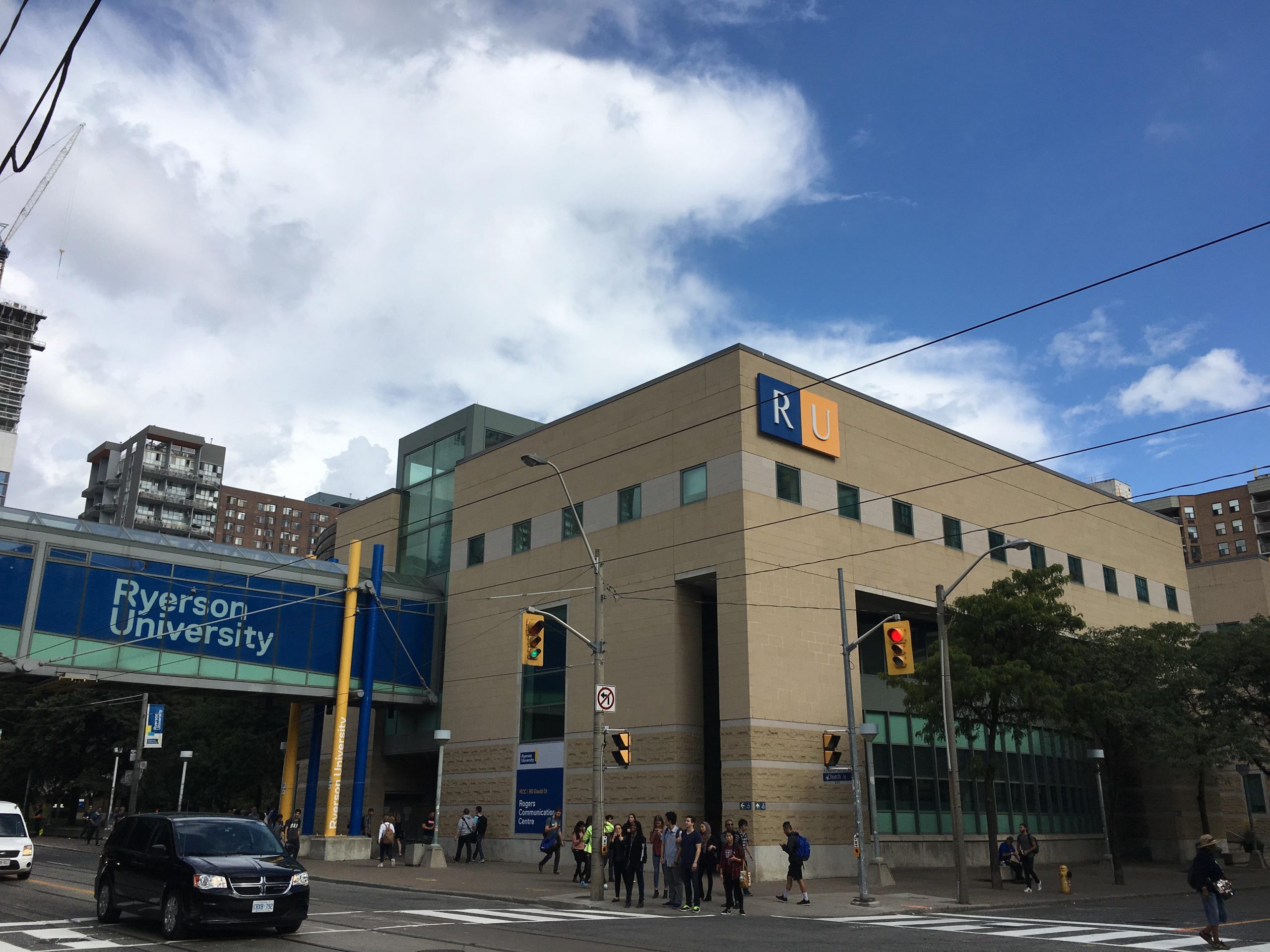By Manuela Vega
On Monday, president Mohamed Lachemi announced the university will be releasing Ryerson’s Anti-Black Racism Campus Climate Review (ABRCCR) on July 17—at least seven months after the review’s expected completion.
The Office of the Vice President, Equity and Community Inclusion, (OVPECI), which co-led the review, is expected to publish the full report on its website following a virtual event. The report is being released on July 17 in recognition of Nelson Mandela International Day, the statement read.
Lachemi’s announcement comes after Ryerson’s chapter of the Black Liberation Collective (BLC) published an open letter on June 4, demanding the university finally make the results of the review available. BLC members told The Eyeopener they have been asking the OVPECI for the results since summer 2019.
The BLC first called on Ryerson in 2016 to conduct a review that would document the experiences of Black students, faculty and staff, and include recommendations for how Ryerson could address anti-Black racism on campus. Ryerson promised to meet the demand in 2017, and in early 2019, began to conduct the ABRCCR.
”This climate review is a direct result of mine and other Black students organizing because we knew this was an institution that often hides what they’ve done to Black students and often hides what Black students, staff and faculty experience,” said alumnus Josh Lamers, who co-founded BLC-Ryerson in 2016 and is now a law student at the University of Windsor.
Lamers said that on June 3, Lachemi addressed him on LinkedIn, saying the OVPECI would publish the review “later this year when the COVID-19 pandemic allows our community to get back to our normal activities.”
Lamers and current members of the BLC were not satisfied with Lachemi’s answer.
YALL! I can’t make this shit up, @RyersonU is using the pandemic as an excuse as to why they won’t release the results of the anitBlack racism climate review! How you gonna have a working group and consultations and you can’t even simply release already completed data. pic.twitter.com/o8S7mm8HJ7
— Josh Lamers (@Josh_Lamers) June 3, 2020
BLC member Hansel Igbavoa said he believes Ryerson held off on publishing the report because its recommendations probably do not align with Ryerson’s previous plans to have special constables on campus.
The BLC’s open letter stated that they expected the report to be completed in September 2019—the same month the executive director of Ryerson’s community safety and security department, Denise Campbell, announced that the university had applied to the Toronto Police Service (TPS) for employees to have special constable status. Campbell previously stated Ryerson’s security decisions would be informed by the ABRCCR’s recommendations.
Igbavoa said that publishing both the report’s recommendations and the proposal for special constables would have looked messy.
In May 2020, Ryerson announced the TPS had approved the proposal for special constables, but by June, Lachemi announced that Ryerson would no longer move forward with the program. That decision came in the wake of local and worldwide protests against police brutality and anti-Black racism as well as pressure from student groups such as BLC and Canadian Students for Sensible Drug Policy.
Ryerson made the review a difficult process, says BLC
Igbavoa said the entire process of conducting the review with the OVPECI was difficult and that Ryerson has consistently lacked transparency. Ryerson makes Black students jump “through multiple hoops just to get the bare minimum,” he said.
“Right off the bat, it was all chaos with them,” said Igbavoa. “Getting the university to even go along with the process, deciding who was going to undertake the climate review, or who was going to lead the consultations, was a problem.”
When the time came for consultations with Black Ryerson community members, the BLC relied on their own platform to spread the word because the OVPECI was late to promote the review, said Igbavoa.
BLC successfully advocated for Ryerson to hire Rinaldo Walcott, a University of Toronto professor and director of the Women and Gender Studies Institute, to conduct the review. Walcott specializes in Black diaspora cultural studies and postcolonial studies. BLC members said they trusted that Walcott would be an ethical and transparent reviewer, who would conduct the ABRCCR in such a way that accurately presented the concerns of Black community members.
“We knew we didn’t want some respectable Black person to come in and tell the institution what it wants to hear,” said Lamers. “We wanted someone who we believed would be ethical in the process…This is why everyone [was] going, ‘Well, where is this report?’”
More demands to be met
The June 4 letter from BLC listed several demands that “address the state of anti-Blackness at Ryerson,” said Igbavoa. This included calling on Ryerson to “release a plan that falls in line with any recommendations in that report as well as any report relevant to the issue of anti-Black racism.”
Lachemi stated that in addition to the report’s release on July 17, he will also be announcing a presidential implementation committee that will be responsible for addressing the report’s recommendations.
The BLC have also demanded the university end their agreement with TPS, commit to never partnering again, make the terms of the agreement with TPS public, and disclose who was involved in brokering the deal. In addition, they’ve asked the university to acknowledge the current over-policing on campus, use a holistic approach to address safety on campus and implement long-term support and care for Black Ryerson community members.
Lamers suggested that students not be afraid to ask more of Ryerson.
“Students more now than ever need to be willing to make very different…kinds of radical asks, stand alongside one another, and not believe Lachemi when he says, ‘We hear you, we listen,’” said Lamers. “Students need to be ready to say, ‘Show us, don’t tell us.’”












Leave a Reply